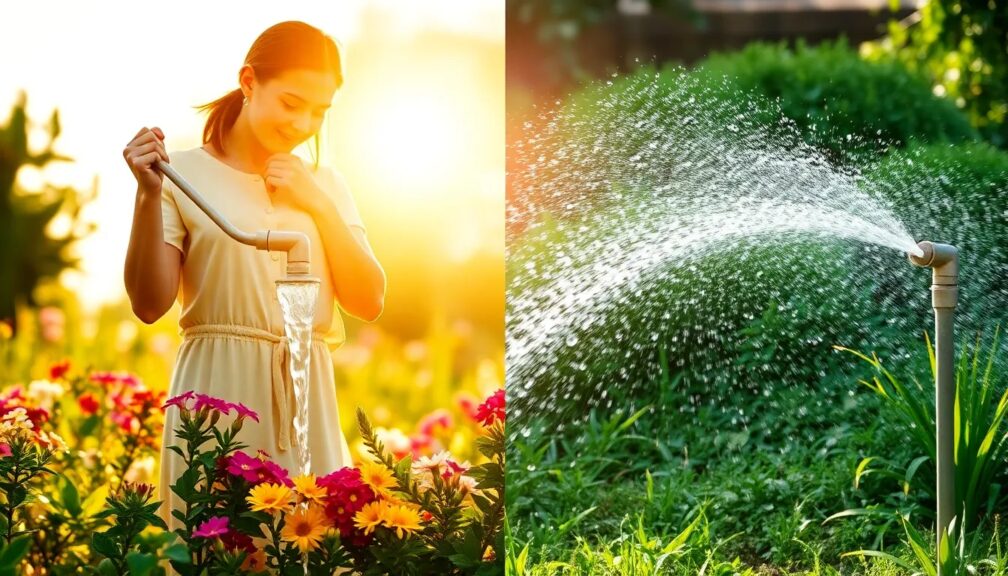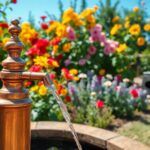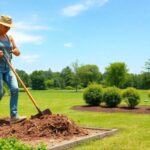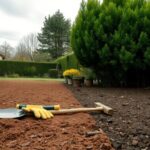Is watering by hand better than sprinkler

In the quest for lush, vibrant gardens and thriving landscapes, the debate between hand watering and using a sprinkler system is one that perennially captures the attention of gardeners and homeowners alike. Each method boasts its own merits and drawbacks, with factors like water efficiency, plant health, and the convenience of the gardener coming into play. This article delves into the intricacies of both watering techniques, comparing the precision and control of hand watering against the ease and automation of sprinklers. Whether you're an avid gardener seeking the most beneficial method for your plants or a homeowner looking to maintain your lawn with efficiency, understanding the nuances of these watering approaches is key to making an informed decision for your green spaces.
Is watering by hand better than sprinkler reddit
Watering your garden can be a meditative activity, a moment to connect with your plants and pay close attention to their needs. But with the busy lives we lead, many resort to the convenience of sprinkler systems. Yet, a growing number of green thumbs on popular forums suggest that the old-school method of hand watering might just trump automatic sprinklers in many ways.
Firstly, when you water by hand, you're giving each plant individual attention. This careful approach ensures that each plant gets the amount of water it needs, where it needs it, without the waste associated with sprinklers. You might be surprised to learn about the water conservation benefits of going manual.
Moreover, gardeners who water by hand often report a deeper connection to their gardens. They notice subtle changes and signs of distress that might go unnoticed with a set-and-forget sprinkler system. Imagine the secrets your garden is waiting to tell you, if only you took the time to listen!
But what about those sprawling lawns and vast flower beds? Is hand watering still practical, or even effective? Many experts weigh in on this debate, with insights that could revolutionize the way you think about garden care.
- Efficiency: Hand watering can reduce runoff and water waste, making every drop count in a way that sprinklers sometimes can't match.
- Customization: Different plants have different needs, and with hand watering, you're in control of meeting those individual requirements.
- Precision: Target the base of your plants to minimize leaf wetness, which can help reduce the spread of diseases.
Join the conversation and discover a wealth of tips and tricks shared by seasoned gardeners. From the best times to water to ingenious methods for keeping your plants quenched, there's an entire community waiting to share its knowledge.
So, are you ready to ditch the sprinkler and take up the watering can? The answers might just change the way you garden forever. Don't get left behind on the latest gardening trends and debates. Your garden—and the planet—might thank you for it.
Is watering by hand better than sprinkler for lawn
Imagine unlocking the secret to a lush, verdant lawn that becomes the envy of your neighborhood. The key might be in the method you choose to water your grass. While many homeowners rely on the convenience of sprinkler systems, there's a growing debate about the effectiveness of a more hands-on approach. Hand watering, a technique as old as gardening itself, could be the missing piece in your lawn care puzzle.
Consider this: when you water by hand, you're not just hydrating your lawn, you're engaging in a ritual that allows for unparalleled precision and care. Every drop of water can be directed to where it's needed most, preventing wastage and promoting deep root growth. But there's more to it than just technique.
Scientific studies have suggested that the mindfulness of hand watering encourages a stronger connection with your outdoor space, leading to better overall lawn health. It’s not just about the water—it’s about the attention and intention you bring to each watering session.
However, before you cast aside your sprinkler, it's essential to dive deeper into the benefits of both methods. Timing, water pressure, and even the quality of water play crucial roles in determining the optimum watering strategy for your lawn.
1. Efficiency: Sprinkler systems can cover large areas quickly, but are they providing the right amount of water to the right places?
2. Control: Hand watering gives you the power to target dry spots and avoid overwatering areas that don't need it.
3. Conservation: In an era where water conservation is becoming ever more critical, could the answer to reducing waste be in the palm of your hand?
The truth is that the superiority of one method over the other is not a one-size-fits-all answer. It depends on a variety of factors, including your lawn's size, shape, and type of grass. But, one thing is certain: the quest for the perfect lawn could very well revolutionize the way you think about lawn care.
Stay tuned as we delve into an exploration of these methods, uncovering the nuances that could make all the difference between a good lawn and a great one. Your lawn is not just a patch of grass; it's a living canvas, and how you water it can be the brushstroke that turns it into a masterpiece. Are you ready to transform your approach to lawn care and witness the stunning results?
Disadvantages of hand watering
While the act of hand watering your garden can seem like a tranquil ritual, beneath the surface lurk hidden drawbacks that could be compromising the vitality of your plants and your precious time. Imagine a thriving garden, the envy of your neighbors, made effortless by moving beyond the old watering can.
Firstly, consider the inconsistency that hand watering invites. Humans are not machines; we have off days, and our attention wanes. This could lead to uneven water distribution, with some plants drowning in excess and others withering from neglect.
Then, there's the issue of time consumption. Hand watering is a labor of love that devours hours each week, hours that could be spent enjoying the beauty of your garden or focusing on other important activities. With today's fast-paced lifestyle, who has the luxury to spare?
Moreover, the physical strain cannot be overlooked. Lugging around a watering can or dragging a hose is not just cumbersome—it's a strain on your back and joints. As we age, these concerns become even more pressing.
But perhaps the most compelling argument against hand watering is the inefficiency of water use. Over-watering not only wastes a precious resource but can also lead to soil erosion and nutrient runoff. The implications for both your garden's health and the environment are profound.
So, what if there was a better way? A method that ensures your garden is the lush oasis you dream of without the hidden costs? Stay tuned, as we delve into solutions that promise to revolutionize the way you nurture your green space. Your garden, and your back, will thank you.
Hand watering advantages and disadvantages
Imagine nurturing your plants, feeling the satisfying weight of the watering can in your hand, and the gentle sound of water caressing the soil. It's a ritual as old as gardening itself—hand watering. But before you get lost in this idyllic scene, you should know there's more to this practice than meets the eye. Hand watering is an art with a spectrum of benefits that could be crucial to your plants' health. Yet, like all things in life, it carries its own set of challenges. If you're not aware of these, you might be missing out on optimizing your gardening routine.
The personal touch is one of the most compelling reasons to consider hand watering. It creates an intimate connection between gardener and plant, allowing for precise water delivery to the spots that need it most. This level of control can be the difference between thriving flora and a mere survival situation in your garden. Plants speak in whispers, and hand watering puts you close enough to hear, permitting adjustments for each plant's unique needs.
However, there's a flipside. This method can be time-consuming, especially if you're overseeing a botanical empire. Every precious second counts, and hand watering could be stealing time that might be invested in other garden maintenance activities. And let's not overlook the physical demand—hours spent holding a watering can isn't everyone's cup of tea.
It's a delicate balance, and understanding both the pros and cons is essential. Missing out on this knowledge could mean the difference between a flourishing oasis and a lackluster patch of green. So, what's the secret to mastering this technique, and how can you avoid the potential pitfalls that lurk behind its seemingly simple facade? Stay tuned, as we delve deeper into the world of hand watering, uncovering the tips and tricks that can make or break your garden's vitality. You might just find that this age-old practice holds the key to unlocking your garden's full potential.
Drip irrigation
is a game changer in the realm of modern agriculture, a sophisticated technique that's transforming landscapes and maximizing yields. Imagine a world where every drop of water counts, where efficiency is not just a buzzword but a tangible reality. This innovative system delivers water directly to the roots of plants, offering a level of precision that traditional watering methods simply can't match.
Curious yet? Here's why you should be:
First, this method uses water judiciously, reducing waste and ensuring that your plants receive the exact amount of hydration they need. No more, no less. In a world where water is increasingly precious, this is not just smart – it's essential.
Second, the magic of this technique lies in its ability to foster healthier plant growth. By minimizing water contact with leaves, stems, and fruit, it significantly reduces the risk of disease and pestilence. The result? Robust plants with impressive output.
But wait, there's more:
1. Save Money: Reduced water usage means lower utility bills. Every cent saved is a cent that can be invested back into your garden or farm.
2. Time Efficiency: This system works around the clock, allowing you to focus on other important tasks. Say goodbye to the tedious hours spent watering by hand.
3. Nutrient Management: The targeted approach allows for direct delivery of nutrients through the watering system, enhancing plant nourishment.
As you ponder your current watering practices, consider the leap to a system that promises not just to maintain your landscape, but to elevate it. The potential for optimal growth, sustainability, and financial savings is right at your fingertips. Don't let the opportunity to revolutionize your gardening or farming practices slip through the cracks.
The age of water-smart agriculture is upon us. Don't be left behind, wondering "what if?" Embrace the future, where every drop is a step towards abundance. The question isn't whether you can afford to switch to this system – it's whether you can afford not to.
Consejo final: Assess your garden's specific needs and your personal routine to decide whether hand watering or using a sprinkler system is best for you. Both methods have their advantages, but the right choice depends on factors such as the size and type of your garden, the amount of time you can dedicate to watering, and the level of water control required. Remember, the goal is to ensure that your plants receive the right amount of water without waste. Wishing you a bountiful and flourishing garden!
 What garden tool is used for irrigation
What garden tool is used for irrigation What is the easiest way to remove grass for landscaping
What is the easiest way to remove grass for landscaping How do I permanently remove grass from my garden
How do I permanently remove grass from my garden What tool is needed to trim or prune smaller plants and twigs
What tool is needed to trim or prune smaller plants and twigs What's the best tool for cutting small branches
What's the best tool for cutting small branchesIf you want to know more about similar articles like Is watering by hand better than sprinkler you can visit category Gardening Tools.
Deja una respuesta